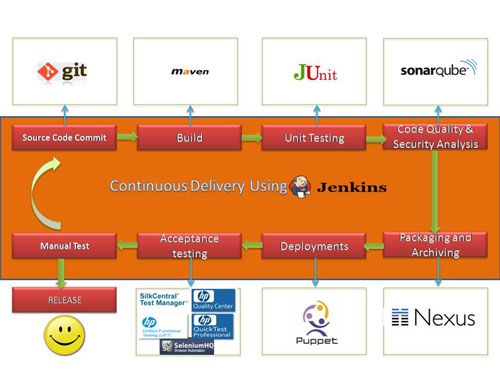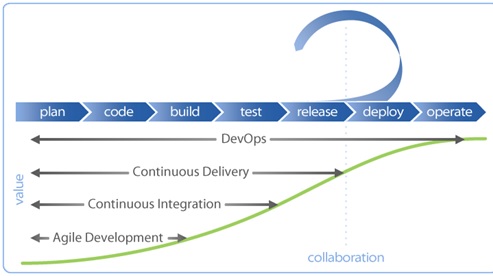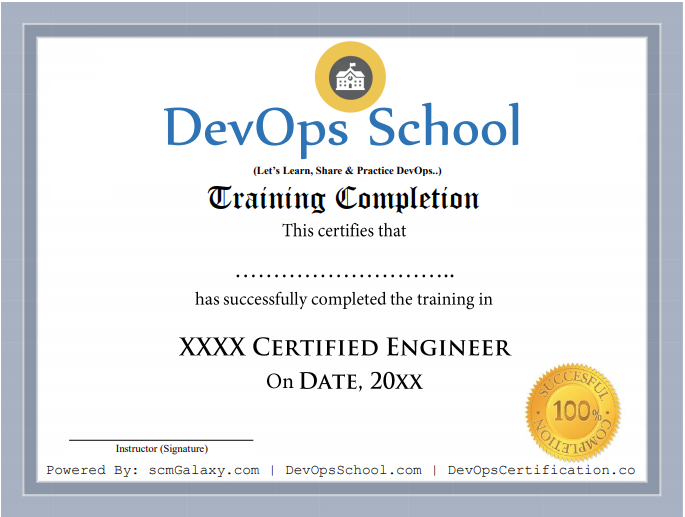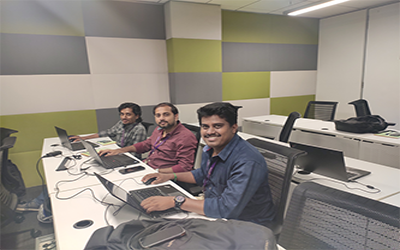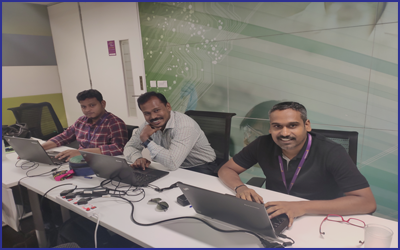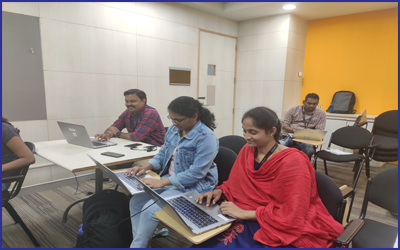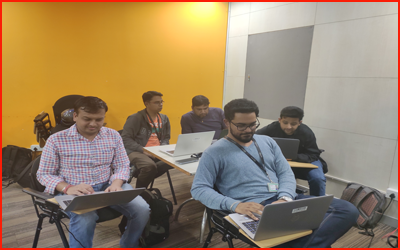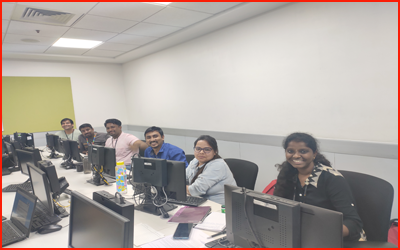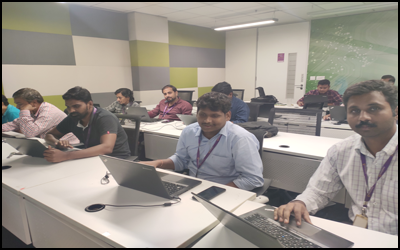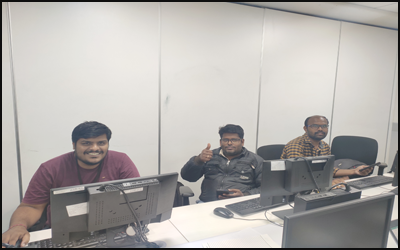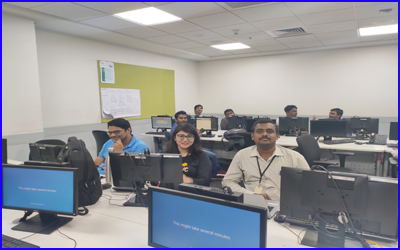About DevOps training in Kolkata
If You Are looking for the best DevOps Training in Kolkata to update yourself with the latest trends in technology then join the DevOpsSchool for upgrading your Skills. DevOps course also develops your skills and important role of increases your career graph. The detail below will discuss these things, before that I am going to tell you about DevOps in below.
What is DevOps?
DevOps has emerged as a fusion of two major trends. Mainly, it is more of a culture which includes practices that bring the Development Team and Operations Teams in an organization together. The aim of the DevOps is to improve the collaboration and remove or diminish all gaps between the development team and operations team. Therefore, many companies are investing in this technology to get the practices done in a simple and reliable way. DevOps culture provides a faster resolution of the problems and it enhances the more secure operating environments.
Why everyone should learn DevOps?
DevOps technology can transform a person from single to multiple skill professional. And this course is the key to success in the Software Development process. Find DevOps benefits in the below
The benefits of DevOps include:-
- Less Unsuccessful Attempts during the Development and Improving the Overall Efficiency.
- Better Communication between the Development Teams and Operational Teams.
- Faster delivery of features and more stable operating environments.
- IT professionals can take advantage of this huge deficit in highly skilled professionals by taking up a certification in DevOps for validation of DevOps skill sets.
- Higher employee engagement and Happier, more productive teams.
It is very important to learn DevOps from a certified platform to gain a comprehensive knowledge in the DevOps area, which will help you build a fast-track industry. Then, you have to find the Best DevOps instructor.
How right DevOps training will help?
Below mention some important DevOps training outcomes:
- Business benefits: Faster delivery of features, more stable operating environments, improved communication and collaboration, and more time to innovate.
- Cultural benefits: Happier, more productive teams, higher employee engagement, and Greater professional development opportunities.
- Technical benefits: Continuous software delivery, less complexity to manage, and faster resolution of problems.
How DevOpsSchool.com will help in your DevOps Training Needs?
If you are looking for DevOps training in Kolkata then I would recommend DevOpsSchool because the team of expert IT professionals founded scmGalaxy in 2008 and the same team established DevOpsSchool in 2016, is the pioneer of organized Training, Support & Consultant in India. Their courses are theoretical and practical, which ensure that candidates receive profound knowledge and skills. Our DevOps training course is designed to help you become a DevOps Engineer.
Some Features of DevOpsSchool:
- Lifetime access to all learning materials (Class recordings, Notes, PPTs etc..)
- Essential to Advanced DevOps Course Curriculum and Work on Real Time Scenario Based Assignments.
- Learn popular DevOps tools like Jenkins, Puppet, Chef, Ansible, SaltStack, Nagios, GIT, Splunk, Docket, Build, Release, Maven etc.
- DevOps Classroom & Live Instructor LED Online training by Mr. Rajesh Kumar who has more than 15 yrs. of experience in IT industry.
- DevOpsSchool provides Course completion certification which is industry recognized and does holds value. This certification will be available on the basis of projects and assignments which participant will get within the training duration.
Who is the corporate trainer for DevOps Training by DevOpsSchool.com
Besides their DevOps trainers in Hyderabad have more than 15 years of experience in corporate and personal DevOps training. DevOpsSchool trainers are experienced teachers with great teaching skills and also many organization helped on-board their tools, processes, and teams on DevOps culture and practices.
Key Highlights
30 DevOpos Tools Included
20 Live & Interactive Sessions
250 Hrs Self-paced Videos
60 Hrs Project & Exercises
Certified by DevOpsSchool
Lifetime Access to Videos Library
Interview & Assessment Support
1 month of internship with MNCs
Working Professionals & Freshers
Real time Projects
Lifetime Free Videos Library
Upcoming Batches
Starting date for the first session is from 9th April 2022 but you can join and start a session from any classes as each tool would be covered from scratch to the intermediate levels.
Eligibility
- Freshers looking to become a DevOps Certified Professional
- IT professionals
- Software testers
- System administrators
- Solution architects
- Security engineers
- Application developers
- Integration specialists
- Aspirants looking to work as DevOps professional can apply for this course.
Skills Covered
DevOps Implementations
Continuous Integration & Delivery
Continuous Deployment
Continuous Inspection
Site Reliability Engineering(SRE)
Digital Marketing Expert
DevSecOps, Sercurity & SIEM
Docker & Containers & Kubernetes
Cloud AWS, Azure & Google Cloud
Microservices
Monitoring & Observability
AiOps, MLOps, DataOps










